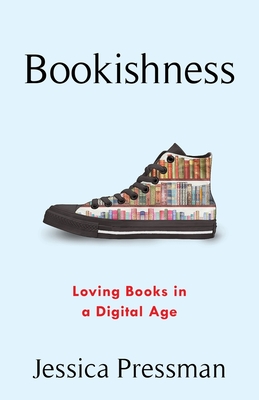Bookishness: Loving Books in a Digital Age by professor and literature scholar Jessica Pressman sits at the intersection of academia and bookstagram. The term “bookstagram” refers to Instagram for “bookish” content. On bookstagram, the term “bookish” describes activities, merchandise, or even individuals that revolve around books. I felt delighted to discover that this academic scholar takes bookishness seriously through an analytical, scholarly, and theoretical lens. Pressman’s research question was essentially how and why representations of physical books persisted into a digital or even post-digital era. Indeed, the presence of a cell phone case or laptop cover designed like a book may seem counterintuitive. Pressman treats this as a phenomenon worth scholarly consideration.
Pressman contends that the culture of “bookishness” merits attention owing to its significance for how people discover each other and themselves through books. According to Pressman, readers feel known and understood when they indulge in bookishness. For example, Pressman writes: “I want books around and want to feel all the feelings of having them near for the interchange of attachments is part of how I recognize myself.” Decades ago, people might have defined a book as a physical object that contains pages to read and absorb knowledge or a story. However, now that alternative vehicles like audio and electronic books are available, the persistence of physical books, related merchandise, and the communities that surround them support Pressman’s argument.
One of these communities is bookstagram, in which readers post images of books, and perhaps especially other bookish content and representations, to engage in community. The more performative, the more significant answer to Pressman’s question regarding bookishness in digital times. The persistence of bookishness reenforces her premise that the book signifies more than a container for the words inside it.
Some hobbyist bookstagrammers might feel unamused by some of Pressman’s academic jargon, as evidenced by some early Goodreads reviews by bookstagrammers who likely searched “bookish” on the advanced-review-copy website Netgalley. At the same time, some academics or professors might believe themselves to be above the industry of bookishness. Spoiler: they are not. Pressman explains that bookishness does not necessarily look like socks with books on them, but instead it manifests as surrounding oneself with unread books to cultivate a sense of belonging, meaning, or purpose. Ultimately, both hobbyist and scholar will take bookishness seriously after reading Bookishness by Jessica Pressman.

Bookishness by Jessica Pressman

0